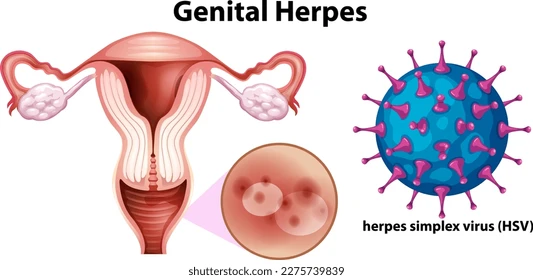The Impact of Vaginal Infections on IVF Treatment: A Comprehensive Guide
Vaginal infections are common among women and can have various causes, including bacteria, fungi, or viruses. These infections can lead to discomfort and other health issues if left untreated. For women undergoing in vitro fertilization (IVF), vaginal infections can raise concerns about their impact on the IVF procedure and outcomes. In this comprehensive guide, we explore the types of these infections, their potential effects on IVF treatment, preventive measures, and when to seek medical help.
Types of Vaginal Infections
There are several types of vaginal infections that can affect women, including:
- Bacterial vaginosis (BV): BV is a common vaginal infection caused by an imbalance of bacteria in the vagina. It can lead to symptoms such as vaginal discharge, itching, and a strong fishy odor.
- Yeast infections: Yeast infections, or candidiasis, are caused by an overgrowth of yeast in the vagina. Symptoms may include itching, burning, and thick white discharge.
- Trichomoniasis: Trichomoniasis is a sexually transmitted infection caused by a parasite. It can cause symptoms such as itching, burning, and a foul-smelling discharge.
Can Vaginal Infections Affect IVF Treatment?
Vaginal infections can potentially affect IVF treatment in several ways. For example, BV and other infections can lead to inflammation in the reproductive tract, which may interfere with the implantation of embryos. Yeast infections can cause discomfort and may require treatment with antifungal medications, which could impact the timing of the IVF cycle.
Additionally, some studies suggest that vaginal infections may be associated with a higher risk of pregnancy complications, such as preterm birth. Therefore, it is important to address any vaginal infections before undergoing IVF treatment to optimize the chances of a successful pregnancy.
Preventive Measures
To reduce the risk of vaginal infections during IVF treatment, consider the following preventive measures:
- Practice good hygiene: Wash the genital area with mild soap and water regularly.
- Avoid douching: Douching can disrupt the natural balance of bacteria in the vagina and increase the risk of infection.
- Use condoms: If you are sexually active, using condoms can help reduce the risk of sexually transmitted infections that can lead to vaginal infections.
When to Seek Medical Help
If you experience symptoms of a vaginal infection, such as unusual discharge, itching, or burning, it is important to seek medical help promptly. Your healthcare provider can perform tests to determine the cause of the infection and recommend appropriate treatment.
Vaginal Infections and IVF Success
The impact of vaginal infections on IVF success is not well-defined, as it can vary depending on the type of infection, its severity, and individual factors. However, research suggests that vaginal infections, particularly bacterial vaginosis (BV), may be associated with a slightly lower success rate in IVF.
One study published in the journal Fertility and Sterility found that women with BV had a lower clinical pregnancy rate (42.9%) compared to women without BV (60.9%) after undergoing IVF. Another study in the same journal reported that women with BV had a lower live birth rate (37.5%) compared to women without BV (58.1%).
It’s important to note that these studies are limited in scope and more research is needed to fully understand the impact of vaginal infections on IVF success. Additionally, the effects of other types of vaginal infections, such as yeast infections or trichomoniasis, on IVF outcomes are not as well-studied.
Overall, while vaginal infections may have some impact on IVF success, it is likely to be modest and can be managed effectively with proper diagnosis and treatment. If you have a vaginal infection and are undergoing IVF, it is important to consult your healthcare provider for personalized advice and guidance.
Conclusion
Vaginal infections are common among women and can potentially affect IVF treatment. By understanding the types of infections, their effects on IVF, and preventive measures, women can take steps to minimize the risk of infections and optimize the chances of a successful IVF outcome. If you have any concerns about infections of the vagina, and IVF treatment, consult your healthcare provider for personalized advice and guidance.
For more information, we recommend our viewers to check out our clinic’s website for a more detailed comprehensive guide on the relationship between vaginal infections, and the IVF treatment. For any of your fertility problems, please do not hesitate to contact us. At Fertility Solutions we pride ourselves with the excellent tailored personal care we provide to our patients for their specific needs. A team member will contact you as soon as we get your message, and construct a personal treatment plan for your fertility problems in the country of Cyprus. You can also contact our clinics directly through the links below.
Cyprus Crown IVF Contact: https://en.cypruscrownivf.com/contact
Cyprus American IVF Contact: https://www.cyprusamericanivf.com/contact-us/
Dr. Halil Ibrahim Tekin (Dr. HIT) Youtube: https://www.youtube.com/@dr.halilibrahimtekin1715
Cyprus American IVF Youtube: https://www.youtube.com/@AmerikanTupBebekMerkezi




